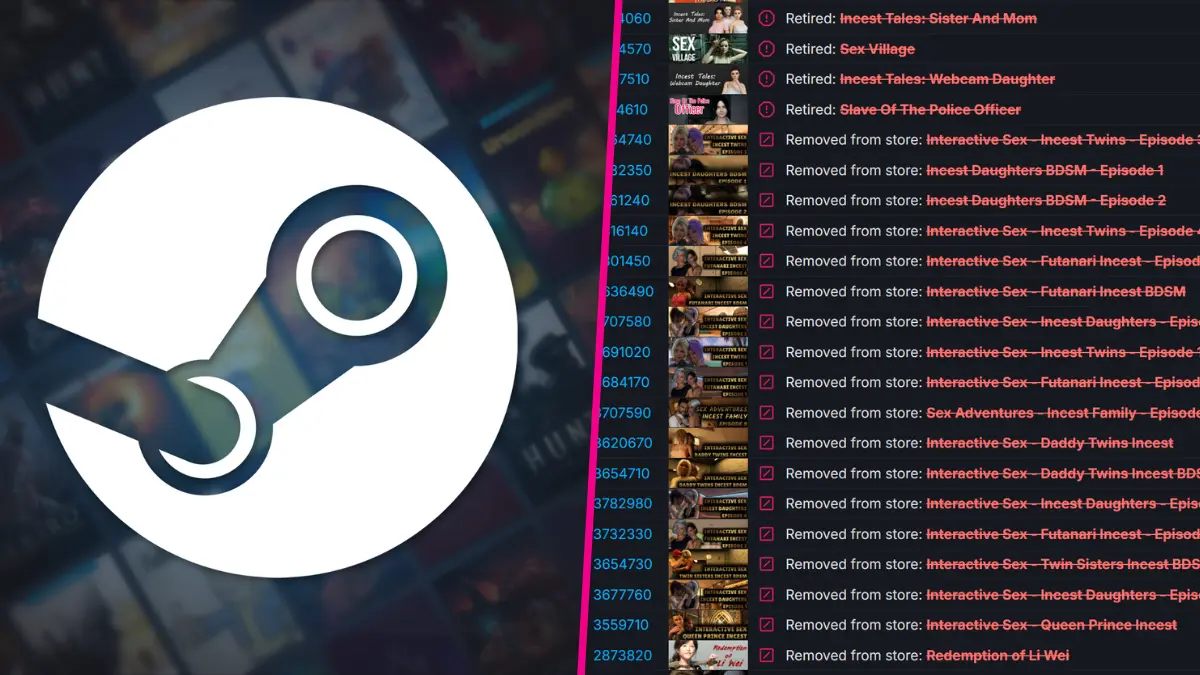Valve has confirmed the removal of over 50 adult-themed games from its Steam platform following pressure from major payment processors. The company behind the world’s largest PC gaming marketplace explained that these titles potentially violated rules set by financial service providers handling Steam’s transactions.
Valve addressed the situation with a statement: “We were recently notified that certain games on Steam may violate the rules and standards set forth by our payment processors and their related card networks and banks.” The company said their hands were tied, noting that “loss of payment methods would prevent customers from being able to purchase other titles and game content on Steam.”
The removed games mostly included extreme adult content with incest themes, non-consensual acts, “lolicon” content (depicting minors), and other controversial material. Developers whose games were taken down were notified by Valve and offered app credits they can use for future releases.
This wide-reaching move looks to have been set off by an Australian activist group called Collective Shout. The group sent formal letters to major payment processors like Visa and Mastercard not long before the ban, urging them to tighten up rules on platforms selling adult content.
Game developers working with adult content are especially rattled by this decision. Many indie studios and creators are now wondering if their businesses can survive, since this kind of pressure has already come up on other platforms. Patreon changed its rules under similar conditions, and DLsite is apparently still arguing with payment processors.
The fallout isn’t just about the banned games. Devs are worried this could be the beginning of wider crackdowns that might eventually hit less extreme content—including LGBTQ+ themes or violent games. The uncertainty has a lot of creators on edge across various corners of the gaming community.
Steam isn’t the only platform in this position. Other sites like itch.io and GOG might end up in the same boat. Some developers are already looking at different payment options to escape the grip of the usual credit card companies.
Money talks, games walk
This whole situation shows just how much power payment processors have over what gets sold online. While governments and regulators might hash out what’s allowed, the credit card companies can just turn off the money and make it impossible for an online store to keep running.
Valve’s decision to go along with it instead of fighting back comes down to the simple fact that Steam—no matter how big—is stuck if it loses its main ways to handle payments. Without credit cards, the whole store would go under.

